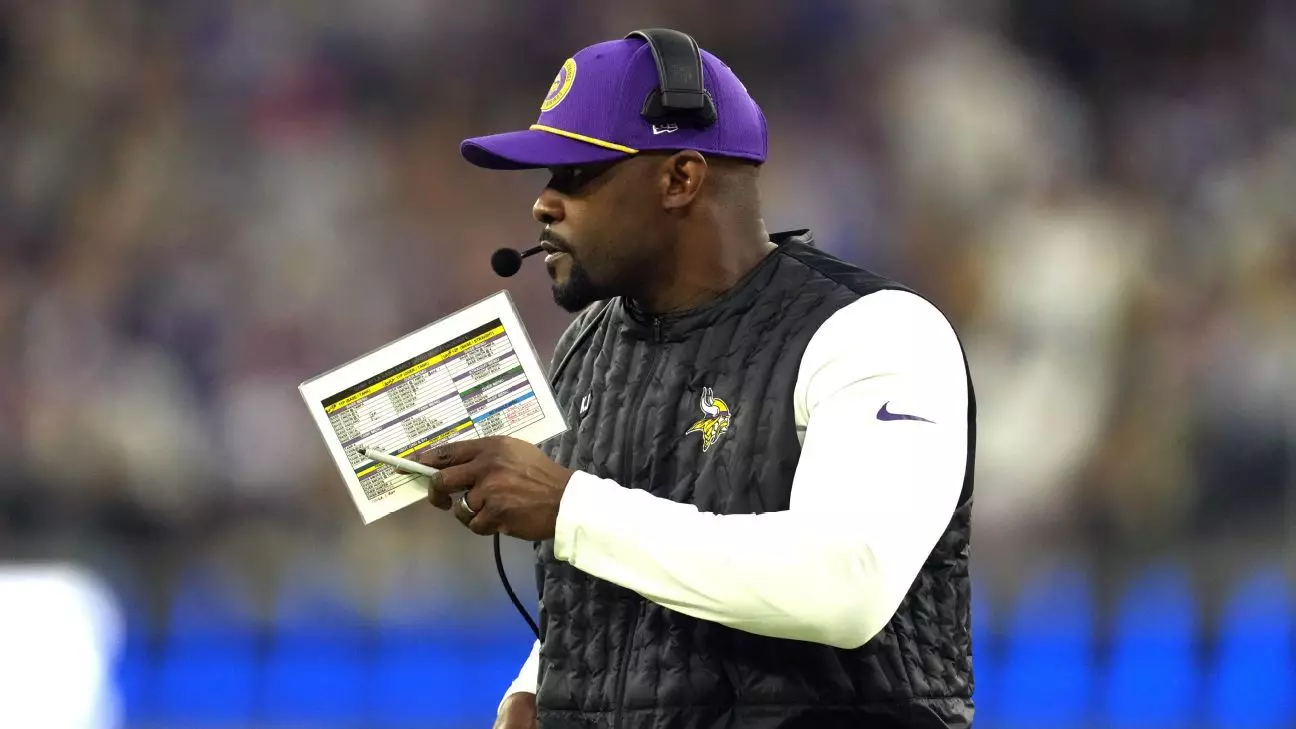The recent federal appeals court decision marks a pivotal moment in the ongoing struggle for racial equality within the National Football League. For years, the league has cloaked its discriminatory practices behind opaque arbitration clauses, shielding itself from accountability. The Second Circuit’s ruling boldly challenges this veneer, asserting that the NFL’s arbitration system is fundamentally flawed and cannot be used to dismiss serious civil rights claims. This decision serves not only as a blow to the league’s perceived immunity but also as a beacon of hope for marginalized voices fighting systemic injustice.
Unlike traditional arbitration agreements that are designed to promote impartiality and fairness, the NFL’s arbitration process has historically been perceived as a tool to suppress dissent and shield league interests. The court’s critique highlights that, under the NFL’s rules, claims of discrimination against Black coaches are funnelled into a process that neither guarantees independence nor fairness. Instead of a neutral arbitrator, commissioner Roger Goodell, the league’s top executive, often acts as judge and jury. This concentration of power inherently undermines the very concept of impartial dispute resolution and reflects a broader pattern of the league prioritizing its image over genuine justice.
The implications of this court ruling extend far beyond the immediate legal battle. By voiding the NFL’s arbitration clauses in cases of discrimination, the court paves the way for affected individuals to pursue their claims openly in court, potentially exposing the league’s internal policies and culture to public scrutiny. Such transparency is crucial if the NFL genuinely wants to confront its legacy of racism and implement meaningful change. The understanding that systemic issues cannot be subdued beneath contractual stipulations is a significant step toward holding powerful institutions accountable.
The Courage of Displaced Voices and the Power of Resilience
Brian Flores’s stand is emblematic of resilience in the face of an institution that has long dismissed or silenced marginalized groups. His lawsuit, launched in 2022, was motivated by a desire to challenge an entrenched culture of racial bias in hiring and promotions. Flores’s testimony, and those of other Black coaches who joined the suit, reveal a disturbing pattern of systemic racism that persists in the highest echelons of NFL management. Despite risking his career and reputation, Flores remained committed to breaking the cycle of injustice—an act that underscores the importance of conviction over convenience.
Flores’s journey from a defensive coordinator to the frontline of a historic legal battle demonstrates that individual courage can ignite broader societal change. His willingness to expose league misconduct, despite personal cost, resonates with advocates of racial justice across all sectors. The NFL’s own demographic makeup reflects a wide disparity between the racial composition of players and coaching staff. This gap is symptomatic of a deeper problem—a league that, intentionally or otherwise, perpetuates unequal representation and fails to create a truly inclusive environment.
The court’s acknowledgment of coach descriptions of racial discrimination adds a vital layer of legitimacy to these claims. It confirms that systemic barriers, reinforced by biased hiring practices, limit opportunities for Black professionals and sustain a culture of exclusion. This recognition signals that the fight for racial equity in sports—an arena with enormous societal influence—is not just about individual grievances but about dismantling an entire systemic framework.
Repercussions, Resistance, and the Road Ahead
While the NFL has expressed disagreement with the court’s ruling and indicates plans for further review, this legal setback challenges the league’s traditional game plan of denial and concealment. It forces the league to confront its own practices and consider reforms that prioritize fairness and transparency. The ruling’s potential ripple effects could crack the façade of the league’s self-regulation, opening the door for more oversight and accountability.
This case raises profound questions about the fairness of arbitration processes in addressing civil rights claims—an issue that resonates well beyond the NFL. It exposes the broader problem of how powerful entities often manipulate legal frameworks to avoid meaningful scrutiny. The court’s decision underscores the urgent necessity for reforms that ensure dispute resolution mechanisms are genuinely neutral, especially when addressing allegations of systemic racism.
Flores’s courageous stand has ignited a wider conversation about racial injustice in sports and beyond. His case is a catalyst for demanding change, not just within the NFL but across all industries where marginalized groups continue to face discrimination. The path forward is complex and fraught with resistance, but this legal victory symbolizes a vital shift toward dismantling entrenched injustices. It affirms that the fight for equality must be relentless—a challenge that extends from the courts to the very fabric of league policies and cultural norms.


Leave a Reply